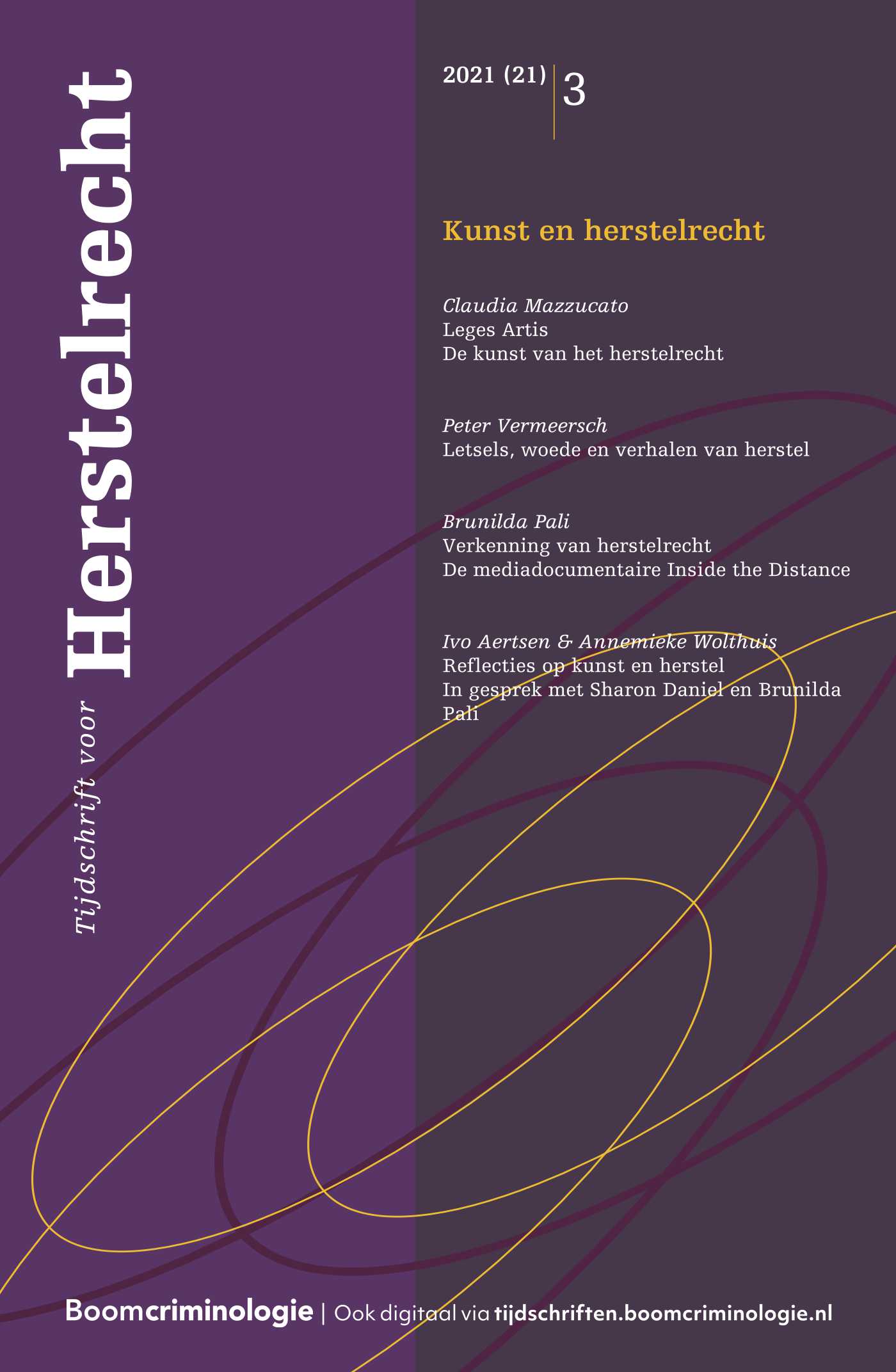|
In this article we describe the mediation practice that exists at the prosecution office in Maastricht/Limburg and which was established in 1999. First, we summarize the main results of our earlier study on the relation between mediation and recidivism/reoffending rates on the basis of the Maastricht mediation model. In the remaining part of this article, we focus on answering the question whether the main results of our earlier study differ when we distinguish between adult (23 years and older) and juvenile (under 23 years) offenders. In order to answer this question several extra analyses have been carried out. The main conclusion of this article is that offenders with whom is mediated, reoffend significantly less than offenders who got a regular criminal sanction – regardless of whether the offenders are older or younger than 23 years. |


Tijdschrift voor Herstelrecht
Meer op het gebied van Mediation en herstelrecht
Over dit tijdschriftMeld u zich hier aan voor de attendering op dit tijdschrift zodat u direct een mail ontvangt als er een nieuw digitaal nummer is verschenen en u de artikelen online kunt lezen.
| Column |
Naar een Wetboek van Herstelprocesrecht |
| Auteurs | Jacques Claessen en Gert Jan Slump |
| Auteursinformatie |
| Redactioneel |
De hamvraag: hoe justitiële professionals sensibiliseren? |
| Auteurs | Bas van Stokkom |
| Auteursinformatie |
| Artikel |
Bemiddeling in strafzaken in Maastricht IIIOnderzoek naar recidive bij jeugdigen en volwassenen |
| Trefwoorden | bemiddeling (in strafzaken), recidive, jeugdige daders, (bemiddelingspraktijk in) Maastricht |
| Auteurs | Jacques Claessen, Gwenny Zeles, Sven Zebel e.a. |
| SamenvattingAuteursinformatie |
| Artikel |
Hindernissen voor een ruimer gebruik van herstelrechtBevindingen van een Europees onderzoek |
| Trefwoorden | herstelrecht, toegankelijkheid, verwijzingsinstanties, strafrechtelijke cultuur |
| Auteurs | Malini Laxminarayan en Annemieke Wolthuis |
| SamenvattingAuteursinformatie |
|
While most restorative justice research would suggest that victims and offenders are often satisfied with their experiences, the number of referrals to these type of programs remain low. This lack of accessibility was the topic of the European Forum for Restorative Justice project, ‘Accessibility and Initiation of Restorative Justice’. This article reports on the project’s findings with regard to several factors which limit greater accessibility, as supported by the attitudes of referral bodies and restorative justice practitioners examined in the frame of this project. The results of previous research and the current empirical research illustrate how accessibility is hindered by (1) lacking or insufficient restorative justice legislation, (2) exclusion criteria regarding which cases may be suitable to restorative justice procedures, (3) a lack of knowledge among legal actors, restorative justice practitioners and the general public about restorative justice and its benefits, (4) the persistence of a retributive legal culture within criminal justice and (5) a need for greater cooperation among those who are involved whether as referral bodies or mediators or facilitators. Qualitative data is presented to provide a better understanding of these elements, in addition to potential solutions that were reported by the respondents. Furthermore, the authors take a closer look at the current situation in the Netherlands, including an overview of the trainings that were developed within the Accessibility project. The results of these trainings reinforce the factors that were identified by previous research and the current empirical research, and aimed to look for solutions to the main barriers to greater accessibility. |
| Artikel |
Minderjarige slachtoffers in herstelbemiddeling: positie en ervaringen |
| Trefwoorden | jeugdige slachtoffers, Herstelbemiddeling, Participatie, Inspraak |
| Auteurs | Eline Renders BA en Inge Vanfraechem |
| SamenvattingAuteursinformatie |
|
This article studies the position of young victims in restorative justice and mediation. First we study the literature, which shows that although young victims may have specific needs, their position within restorative justice remains underexposed. Therefore, we have set up a small explorative study in the beginning of 2015. Through nine interviews with young victims who have gone through a mediation process in Flanders, we sought to answer three central questions. The article discusses whether these victims were satisfied with the mediation process, whether they could have a say in the process and what the importance was of having support persons throughout the mediation process. |
| Boekbespreking |
Bemiddeling in strafzaken in België |
| Auteurs | John Blad |
| Auteursinformatie |
| Boekbespreking |
Verschenen najaar 2015 |
| Casus |
In memoriam Nils Christie |
| Auteurs | Eric Wiersma |
| Auteursinformatie |
